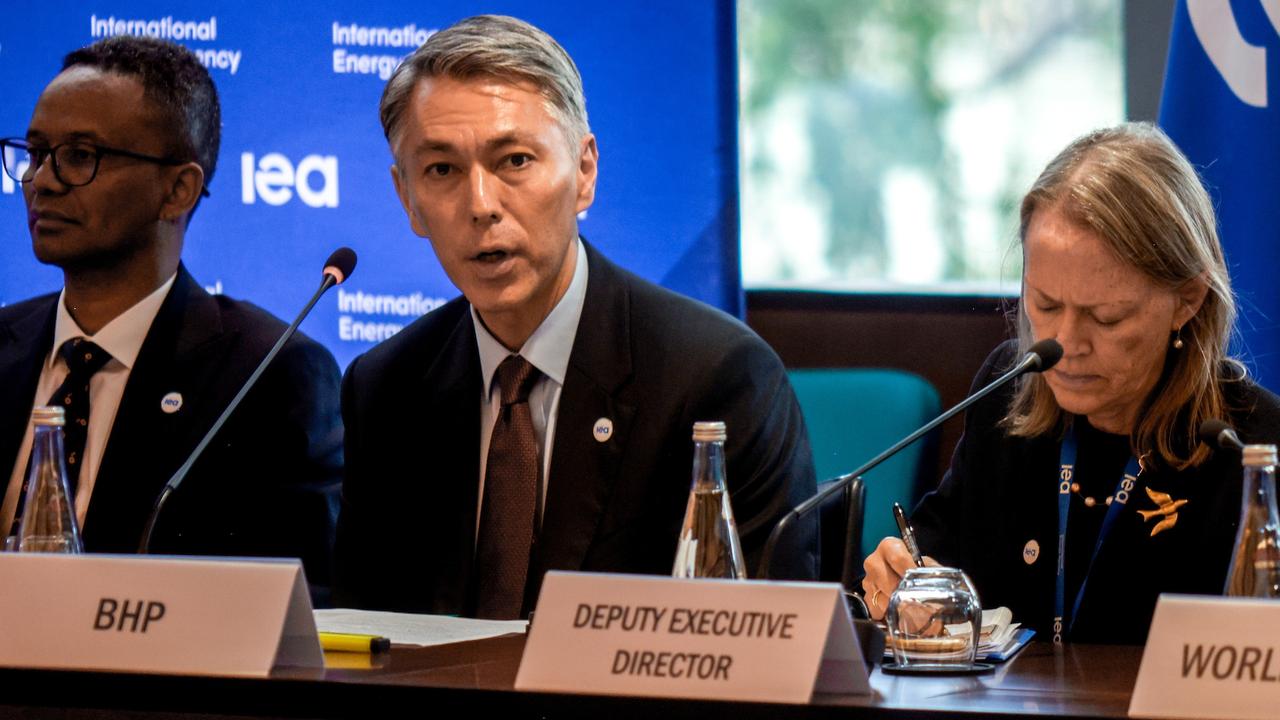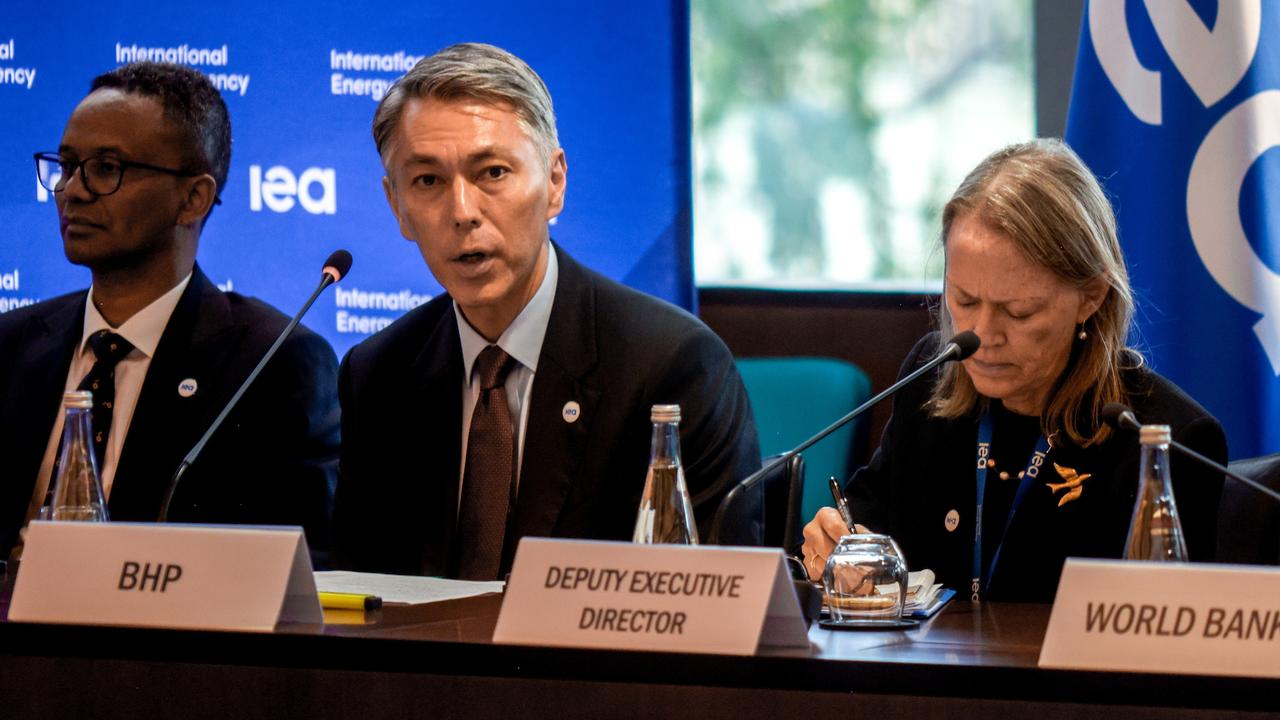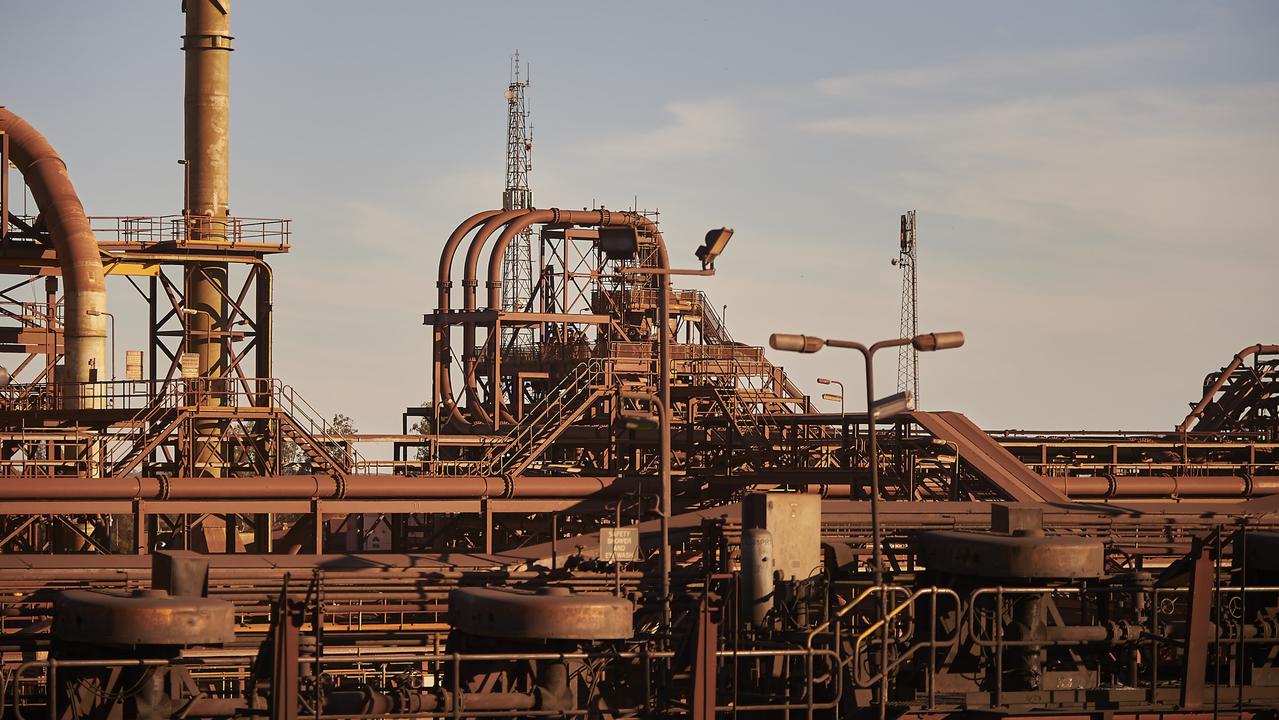BHP CEO Mike Henry warns Paris climate change hopes hang on copper
The world’s largest mining company is warning global climate change aspirations are at risk because investment in a key ingredient to fuel a green future is too low.

Investment in a key commodity that will underpin a global transition to a renewables base and limit climate change is short by more than $300bn, mining giant BHP has warned.
CEO Mike Henry, speaking in Paris at the IEA Critical Minerals and Clean Energy Summit, said about $386bn of “growth capital” investment into copper could be needed in the next seven years to limit temperatures rises to 1.5 degrees celsius.
“That is over and above sustaining capital,” he said.
“But currently committed growth projects over this period only amount to around US$40 or US$50bn ($77bn) today.
“More projects need to be identified, permitted and given the green light by those who are to invest in them.”
Copper is an essential part of a range of green technologies from electric cars to solar panels because of its excellent electrical conductivity.

BHP is betting big on the mineral as it positions its portfolio to align with what it considers three fundamental long-term trends: population growth and urbanisation, rising living standards and decarbonisation.
The company operates copper mines in Chile and co-owns the Antamina mine in Peru.
In South Australia, it is developing a “copper province” through linking its Olympic Dam mine 570km north of Adelaide with the Prominent Hill and Carrapateena mines it gained from its acquisition of Oz Minerals this year.
Mr Henry said governments must provide “predictability and stability” to attract the capital necessary to fuel more mining in critical minerals.
“This means stable fiscal settings, streamlined planning and permitting processes and harmonised standards,” he said.
“Too often we see short-termism in government policy, or policies which seek to meet near term political objectives but which show limited understanding of what drives investment.

“This slows the deployment of capital and will ultimately make the energy transition harder and more expensive.”
Mr Henry also warned the grade, or the percentage of metal in a given volume of ore, across key minerals such as copper, nickel, lithium and steelmaking raw material, was “falling at existing operations”.
“This means more ore needs to be mined just to stand still,” he said.
“Newly discovered and developed deposits are, on average, incrementally lower grade as well.
“They’re increasingly hard to find, often deeper, and generally smaller.”
Mr Henry spoke alongside IEA executive director Fatih Birol, US energy secretary Jennifer Granholm, Indonesian Energy and Mineral Resources Minister Arifin Tasrif, EU internal market commissioner Thierry Breton and Indian Minister of Mines secretary VL Kantha Rao at the summit.




